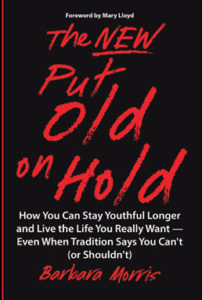

As I’m working with people in a clinical setting I’m finding many people… okay, most people, have a very dysfunctional relationship with food. In my practice one of the steps I have clients do is keep a food/mood journal for 3-4 days. They need to keep track of everything they eat and drink, keep track of mood and how they feel after eating. I track movement (exercise) and their sleep quality.
When I ask clients to track their food and mood there’s guilt and shame associated with the task. Initially, I hear “I’m embarrassed to show you what I eat”, or “I’ll try to be “good” these 3 days”. I make it clear there’s no judgement from me as to what they eat, I just want to see where I can help with their health concerns.
We have been conditioned from our parents, grandparents and beyond to eat a certain why because that’s what we’re exposed to from birth. When you look at the history of food it’s not our fault we’re in poor health.
Here’s a quick history lessons of the 5 key milestones in man’s diet. We began as hunter-gathers approximately 40,000 year ago. Did you know 99.9% of our genes were formed before agriculture? Moving forward 12,000 years ago we learned how to grow and cultivate crops. In the 1600’s the introduction of refined sugar presented itself. Back in the 1800’s the industrial revolution brought us refined and processed goods. As we look at the 1900’s the food giants took over control of what we eat. And lastly, during WWII-present we have the chemical revolution of genetically modified foods.
Even the government had their fingers in the mix in the 1970’s with their nutritional recommendations or the Standard American Diet (SAD) From the 1950’s we’ve been told fat is bad and we’ll all die from cardio vascular disease (CVD) from eating animal products. President Eisenhower was on a low-fat diet and suffered a few heart attacks and his cholesterol was elevated while consuming margarine and other processed food products. What does that tell us?
We’ve all seen the trends in diets over the years, and yes, I’ve done them all. If I was able to recoup the money I’ve spent on diet books, programs, special foods, workout programs, gyms, etc. I would be in the 1% economic class and more than likely so would you.
So, getting back to the dysfunctional relationship with food. We don’t know what to believe or think anymore. Should I eat low fat, high fat, reduce calories, workout more, low carb, more grains, remove red meat, become a vegan, eat a gluten free and sugar free diet? Your head could explode thinking about all these ways of eating which brings us back to the dysfunction relationship we have with food.
This is what I know. Most people believe sugar is bad and that’s a good start. However, they know its bad eat it THEN feel some sort of guilt and shame. There’s strong scientific evidence that sugar is highly addictive. To think about giving up the sugar in your coffee or tea can push people over the edge. Clients tell me they CAN’T give up their sugar in their coffee. Can’t is a strong word. The addiction is real.
We beat ourselves up when we eat something we know we shouldn’t. We justify why we’re eating a certain food and make an excuse to convince ourselves it okay because it’s a holiday, or birthday, vacation etc. But what about the times it’s not? What’s the excuse now?
Kicking the sugar habit is tough and it begins with a decision. It also comes with the negative self-talk we say to ourselves. In no other time in our food history have we had to battle so hard to regain our health and deal with our beliefs about food.

Gale, good for you for trying to rid your diet of sugar. I know how difficult it is but I know you will keep trying. Your health will benefit over the long term. And, you will probably lose some weight.
Very good article. I have fought sugar for five decades! Not only is it in our treats, like cookies, but in many other products that our body turns into sugar, such as pasta and potatoes. It’s very hard to give up. I have eliminated most of it, from my coffee, etc. I still have to have some. Eating healthier and exercising more in these last 10 years, than I ever have. Will be 70 in December. I’m very active and want to stay that way as long as I can!
Gale, good for you for trying to rid your diet of sugar. I know how difficult it is but I know you will keep trying. Your health will benefit over the long term. And, you will probably lose some weight.
You’re right Gale, sugar is EVERYWHERE and can be difficult to avoid. Blood sugar regulation is so critical with our modern diet. The big food manufacturers use “hidden” names for sugar…disaccharides, sucanat, polysaccharides, etc. I advise clients to read labels, but the sugar still sneaks in.
All of the starchy carbohydrates will raise insulin thereby raising blood glucose. If you limit those or eliminate altogether you’ll win.
My recommendation is to just start by reading labels and learning the hidden sugars names, so you can make better food choices.
You’re doing a great job – keep at it!
Good article!
Thanks for the feedback! I’m glad you enjoyed the article.